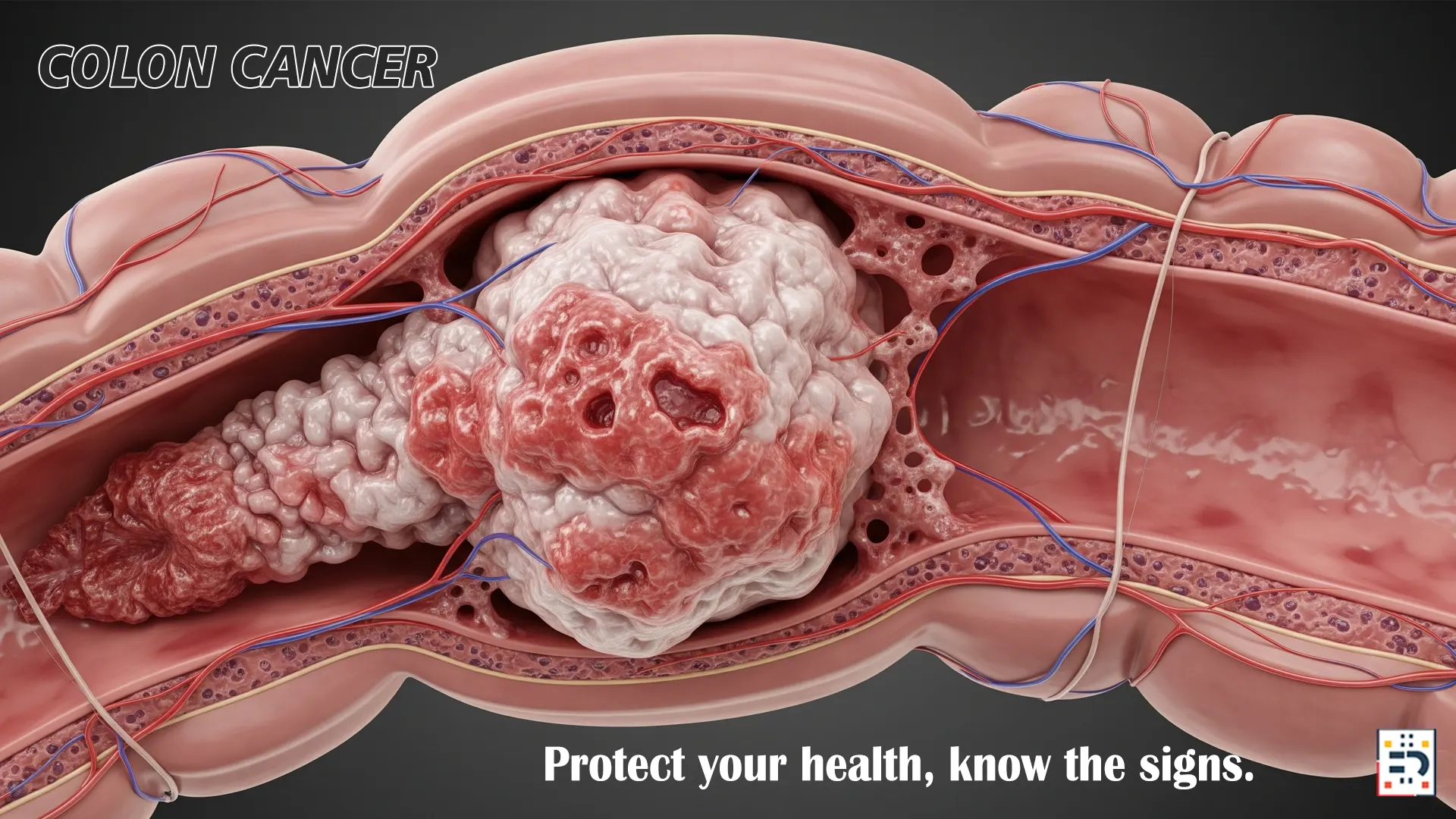Introduction
Colorectal cancer, which includes both colon and rectal cancers, is a significant health challenge in America. Despite advances in detection and treatment, this disease continues to impact thousands of families annually. Understanding the current landscape of colon cancer in the U.S. is crucial for patients, families, and healthcare providers working together to combat this disease. This guide provides a detailed look at the latest statistics, trends, and recommendations for 2025.
Current Statistics and Trends
The statistics for colon cancer in the United States present a complex picture of both progress and ongoing challenges. The American Cancer Society estimates approximately 107,320 new cases of colon cancer will be diagnosed in 2025, with 54,510 cases in men and 52,810 in women. When combined with rectal cancer, the total number of new colorectal cancer cases is expected to reach 154,000 in 2025.
The lifetime risk of developing colon cancer is a sobering yet important statistic to understand. Currently, 1 in 24 Americans will develop colon cancer during their lifetime. The rates are slightly higher for men (1 in 23) compared to women (1 in 25).
Despite these numbers, there is encouraging news in the overall trends: age-adjusted rates for new colorectal cancer cases have been falling on average by 0.7% each year over the period of 2013–2022. Additionally, age-adjusted death rates have been declining by 1.3% each year over 2014–2023, indicating that our efforts in early detection and treatment are making a difference.

Health Disparities and At-Risk Populations
Colon cancer does not affect all Americans equally, with significant disparities existing across racial and ethnic groups.
- Black Americans face a 15% higher likelihood of developing colorectal cancer and are 35% more likely to die from the disease compared to their non-Hispanic white counterparts.
- Alaska Native individuals experience the highest colorectal cancer incidence and mortality rates globally, highlighting the urgent need for targeted interventions in these communities.
The Rising Concern: Young-Onset Colorectal Cancer
One of the most alarming trends in American colon cancer statistics is the increasing incidence among younger adults. About 10% of colon cancer cases in the U.S. are now diagnosed in people under 50, and these numbers are rising by about one to two percent each year. This trend has prompted significant changes in screening recommendations and represents a critical area of ongoing research. Researchers are exploring various factors, including dietary patterns, environmental exposures, lifestyle changes, and potential genetic factors that may be contributing to this concerning trend. You can find more information on young-onset colorectal cancer from the National Cancer Institute.
Screening Guidelines: What Americans Need to Know
Recent changes in screening guidelines reflect the evolving understanding of colon cancer risk in the United States. The recommended screening age has been lowered to 45 years for people at average risk, a significant shift from previous guidelines.
Key Signs and Symptoms of Colon Cancer
Early-stage colon cancer often shows no symptoms, making regular screening vital. When symptoms do appear, they can be subtle and easily mistaken for other conditions. It’s crucial to see a doctor if any of these signs persist for more than a few days.
- Changes in Bowel Habits: Be aware of ongoing changes like persistent diarrhea or constipation, or a noticeable difference in the consistency of your stool. You may also have a feeling that your bowel isn’t completely empty after a movement.
- Blood in or on your Stool: This is a major warning sign. The blood may be bright red, dark red, or appear black and tar-like.
- Rectal Bleeding: Seeing blood on the toilet paper or in the toilet bowl. While this can be caused by hemorrhoids, it’s essential to get it checked to rule out cancer.
- Abdominal Discomfort: Watch for persistent cramps, gas, pain, or bloating that doesn’t go away.
- Unexplained Weight Loss: Losing a significant amount of weight without changing your diet or exercise habits.
- Fatigue and Weakness: Feeling unusually tired or weak, which could be a sign of anemia caused by slow, chronic bleeding from a tumor.
Who Should Be Screened
Most Americans should begin screening for colorectal cancer soon after turning 45 and continue getting screened at regular intervals. However, some individuals may need earlier or more frequent screening, including those with:
- Inflammatory bowel disease such as Crohn’s disease or ulcerative colitis
- A personal or family history of colorectal cancer or certain types of polyps
- Confirmed or suspected hereditary colorectal cancer syndromes
People over the age of 85 should generally no longer receive routine colorectal cancer screening, as the risks may outweigh the benefits at this age. The CDC provides a comprehensive guide to colorectal cancer screening.

Available Screening Options
The United States offers multiple screening options, allowing patients and healthcare providers to choose the most appropriate method based on individual circumstances and preferences. All recommended tests are considered acceptable options. For a detailed breakdown of different screening methods and their benefits, visit the American Cancer Society’s resource page.
Survival Rates and Prognosis
The prognosis for colon cancer varies significantly depending on the stage at which it is detected. The five-year relative survival rate for people whose colorectal cancer is found in the early stage before it has spread is approximately 90 percent. This statistic underscores the critical importance of early detection through regular screening. Early-stage detection not only improves survival rates but also often allows for less invasive treatment options and better quality of life outcomes for patients.
Risk Factors and Prevention
Understanding risk factors can help Americans make informed decisions about their health and screening schedules. Risk factors fall into two main categories:
Non-Modifiable Risk Factors
- Age (risk increases with age)
- Personal or family history of colorectal cancer or polyps
- Hereditary conditions such as Lynch syndrome or familial adenomatous polyposis
- Inflammatory bowel diseases
Modifiable Risk Factors
- Diet high in processed and red meats
- Low fiber intake
- Sedentary lifestyle
- Obesity
- Smoking
- Excessive alcohol consumption
- Diabetes
Making lifestyle changes can significantly reduce your risk. For more information on how to lower your risk, visit the Mayo Clinic.

The Healthcare System Response
The American healthcare system has responded to the colon cancer challenge through various initiatives and guidelines. Healthcare organizations are working to improve screening rates and reduce disparities in care. The goal is to ensure all eligible Americans have access to appropriate screening and follow-up care. Quality measures have been established to track progress, including the percentage of adults ages 45-75 who receive appropriate colorectal cancer screening.
Looking Forward: Challenges and Opportunities
The fight against colon cancer in the U.S. continues to evolve. Key challenges include:
- Addressing health disparities among different racial and ethnic groups.
- Understanding and reversing the trend of increasing young-onset colorectal cancer.
- Improving screening participation rates across all eligible populations.
- Ensuring equitable access to high-quality care and treatment options.
Opportunities for progress include continued advancements in screening technologies, a better understanding of genetic and environmental risk factors, and enhanced public education campaigns. You can learn more about advances in colorectal cancer research from the National Cancer Institute.
Colon cancer remains a significant health concern, but there are reasons for optimism. The decline in overall incidence and mortality rates shows that progress is possible through effective screening, early detection, and improved treatments. However, the rising rates among younger adults and persistent health disparities require continued attention and resources.
For Americans, the key message is clear: awareness, early screening, and lifestyle modifications can significantly impact colon cancer outcomes. By staying informed about current guidelines, understanding personal risk factors, and maintaining open communication with healthcare providers, individuals can take proactive steps to protect their health.


